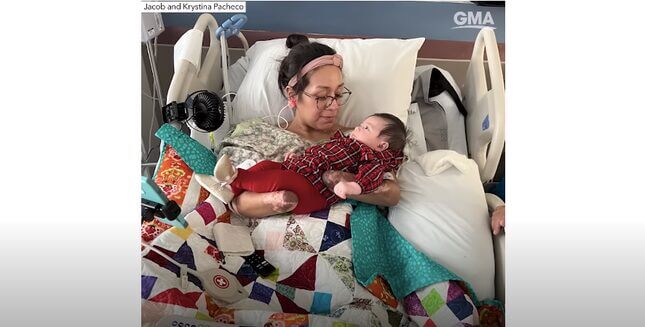Pregnancy Is Not a Benign Event
What a Texas woman's quadruple amputations tell us about giving birth in the United States—forced or not.
Health

Late last week, researchers announced that the already high maternal mortality rate in the U.S. hit its highest level since 1965. The number of people who died during or shortly after pregnancy increased a staggering 40 percent from 2020 to 2021, marking the third year in a row the maternal mortality rate had increased in this country. And that was before the Supreme Court overturned Roe v. Wade—though abortion was effectively banned in Texas for the last four months of 2021.
I was already thinking about these dire numbers, and how more forced pregnancies will mean more women dying, when I read the story of Krystina Pacheco, a Texas woman who had her hands and feet amputated due to a life-threatening infection she developed after a C-section.
Pacheco, 29, didn’t have a miscarriage and wasn’t denied an abortion—she had what she called an “uneventful” C-section in late October 2022. But she started feeling feverish two days later, the day she was discharged, and a nurse gave her ibuprofen. She kept feeling sick and saw a doctor, who sent her to the ER. From there she was airlifted to a different hospital where doctors diagnosed her with septic shock. That’s the most dangerous stage of sepsis, in which the body has an extreme reaction to an infection, and it can lead to tissue damage, organ failure, and death. Sepsis is the second leading cause of pregnancy-related death, according to the Centers for Disease Control and Prevention.
-

-

-

-

-

-

-

-

-

-

-

-

-

-

-

-

-

-

-

-

-

-

-

-

-

-

-

-

-

-

-

-

-

-

-

-

-

-

-

-








































